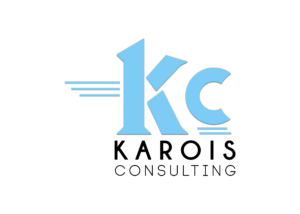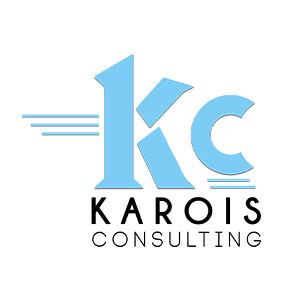Almost every project starts with a kickoff of some sort be it a call, meeting or an off-site session to rally the troops around the initiative and get going. These meetings are typically charged with energy, vision and excitement as the team discusses the possibilities ahead of them and the shiny brand-new end state expected to be accomplished. Depending on what happens after, the kickoff meeting will either be remembered as a lot of hype or as a meeting that set the tone and guided the Team in successful execution of the objective.
Most of us hope that our meeting will be remembered as the latter; this article explores why the kickoff meeting is important: what it should look like in reality? How much thought and preparation goes into a project kickoff? Or do we think that we just have to pull some general notes together and can adjust it later?
Purpose of Kickoff
The goal of a kickoff meeting is to communicate the “WHY” of the initiative. You have just been asked to join another project you really can’t say “No!” because your boss says it’s a good opportunity for you. Most of the participants on teams are also working on the job they are hired to do full-time and projects may extend them beyond their current responsibilities, therefore rather than just check-in they need to know:
- Why is the project happening?
- Why now?
- Why are they involved?
- Why are others involved (e.g. external agencies)
- Why not another initiative (assuming there are other known options)?
The team must leave the room feeling that the project is a priority for the prosperous future of the business not because leadership says so but because it is truly the case from a strategy and practical ongoing operations perspective. I have a background in retail where most decisions are tactical in nature; in such contexts team members probably have very concrete views on how a particular aspect of their function e.g. brand marketing should be conducted.
Knowing why the project happening is the big picture 30,000 view; it gives the market context and the positioning of the company in relation to customers and competitors and paints a picture of what needs to happen, the gap/problem being solved making it tangible and attainable to the stakeholders in the room, eliciting an “Aha!” moment . The timing of the initiative is also important because there may be multiple strategic priorities being pursued at the same time that team members are involved with. They must be able to value this initiative as a priority for their role and department.
Team members also want to know why they are being included i.e. especially if they are part of a cross functional group not leading the charge and the kickoff is a good time to explain the overarching linkages between the departments, strategies and processes. This is also a good time to explain why others are involved, especially external partners and agencies, present capabilities (in general) and how they will contribute to the assignment. In case there is a strong view on a different solution or challenge to be solved that is already known sharing why that idea has been postponed, replaced with this idea is another piece of the puzzle.
So, there Is a big “Why” question hanging in the room and it’s actual a series of questions. Answering those questions is critical to each team member leaving the kickoff with a crystal-clear picture of why the initiative is important to company strategy and to them. So that’s it in a nutshell if the kickoff meeting does not address anything else it should answer “Why” from every angle of interest. Now that we have the why, we’ll go over the how to conduct a kickoff meeting what it is/not, format.
What it Is, Is not and How
The kickoff meeting is a time to:
- Level set on expectations
- Outline the project and what it entails
- Tie the project to strategy and company priorities
- Define project boundaries, dependencies/ intersection with other initiatives
- Establish team structure, who is leading, managing, needs to be added to the team
- Confirm workstreams, timing and communication
- Ask questions and get clarity
The kickoff is not a time to:
- Formulate solutions
- Debate different approaches
- Broach deep technical subjects e.g. software selections
- Raise risks and issues (though not totally off limits to include one big risk)
So, you may be asking how one should actually conduct a kickoff for a project and that’s a good place to go next:
- Schedule – we recommend an hour at most, if it’s a really large cross-functional project with a number of senior leaders who may have to present an extra 30 mins should suffice. You want a meeting long enough to understand the basic tenets but not so long as to delve into details.
- Preparation – this important step is where the leadership and project managers should spend the most time. The time invested ensures that a) the leaders are clear of how to a) define purpose, objectives and goals b) structure project workstreams b) assign team members (governance) c) communicate formally d) set duration/timeline. Leaders will need several sessions to work out these details. The more clarity in preparation, then the higher the likelihood that the kickoff meeting will run smoothly. Of the five areas to define a) define purpose, objectives and goals must take no shortcuts because this is the meeting and is the what the kickoff is intended to communicate – “The Why”.
- Set agenda – As the team sets agenda be cognizant that the majority of the meeting is spent on purpose, agenda and objectives, project governance. The remaining topics can be breezed over as there will be plenty of time to dig into details once the project starts.
- Conduct kickoff – set a pre kickoff meeting to review agenda with other leaders if you have multiple stakeholders, to avoid any surprise questions or reactions from key leaders once the meeting has started. At the kickoff follow the agenda giving leaders ample time to share the initiative vision. If you are a consultant, please note that the kickoff meeting is usually presented by the business leaders as it’s meant to drive ownership and accountability. As consultants our role is to give the intro, go through some the logistics and details e.g. timeline if needed, and mostly drive ownership. Even if the consulting team has more responsibility in launching a major initiative try to have the business leads share as much as possible, and introduce key point people on the consulting team.
- Share materials electronically or hard copy at the beginning or after the meeting as is your organizations practice.
- Debrief, make sure to speak with Business Leaders and other key team members in case there is some new information to be considered in the approach.
Kickoff Content
The actual content of the meeting presentation typically includes the following but again can include any relevant background material furthering the explanation of the “Why” of the initiative. Components include:
- Purpose – the business imperative or why of the meeting.
- Objective & Goals – general and specific outcomes of the project
- Project governance – team structure and workstreams, if possible, define sub-stream leads.
- Timeline – Expected duration at high level workstream or sub-stream level
- Communication plan – operations, how the team will work together, common touchpoints and forums
What If I Don’t Conduct a Kickoff?
It all depends right? However often I would say that many failed projects did not have a strong kickoff, symptoms of that show up later as the team starts to spin and answer tangential questions that are not part of the main objective, or the team starts to review alternative solutions/approaches, or team operations start breaking down through lack of attendance or quality participation. Okay, there are times these things happen due to a new key consideration that is introduced e.g. a competitor action that requires response. True enough but this can also happen because of hastily thought through kickoffs or none at all, or using a templated approach instead of working through and defining the project operations to fit the project. The kickoff is not just a meeting, or presentation but should be the framework and reference point for the project through out to delivery.
Kickoffs are important and work investing the time, they keep leadership, managers and team members alike focused on the intended outcome and help increase chances of success.
Sign up for our Newsletter at https://www.karois.com/contact/

